As a combat medic Rory was dedicated to saving lives on the battlefield. But when unseen demons haunted her years after her separation it would be a rescue dog who came to her aid.
Land and sea
In 1993 Rory enlisted in the Navy. She trained as a hospital corpsman and earned the rank of petty officer third class. After seven years of service she left the Navy with an honorable discharge.
But Rory’s separation from the military would not last long.
“I happened to be living in Alabama 2002 when I enlisted in the Army National Guard,” she says. “I started out training to be a light wheel mechanic. Then in 2004 [I] was re-classed to a combat medic due to my experience as a corpsman in the Navy.”
Corpsman deliver a wide range of health care services to naval personnel and their families. They serve in hospitals and clinics, as well as aboard naval ships and aircraft. And they serve alongside Marines, even in battle.
Army combat medics provide battlefield trauma and emergency care to deployed soldiers. They triage injured personnel, deliver emergency medical care, and help evacuate wounded troops.
“…I ran like the wind”
In 2004 Rory’s National Guard unit deployed to Baghdad, Iraq. She would serve as a combat medic in one of the most dangerous, volatile places on the planet.
Still, there were occasions that Rory recalls with fondness.
“Some of my most memorable moments during my time of service was being stationed with the United States Marine Corps,” she says. “I had a lot of fun times with them.”
For the most part, however, Rory’s deployment was a profoundly stressful experience. She shares one such harrowing event that – thanks to the benefit of time – she remembers with a touch of levity.
“One time I recall was when a Marine thought it was funny to tell me that I had 30 seconds to get out of the area before stuff started blowing up,” she says. “I ran like the wind – back when I was able to run fast – and I ran right past an officer without recognizing the officer.”
War is hell
Rory does not share what event, or series of events, led to her honorable separation. No one questions the horror endured by anyone who serves in a combat zone.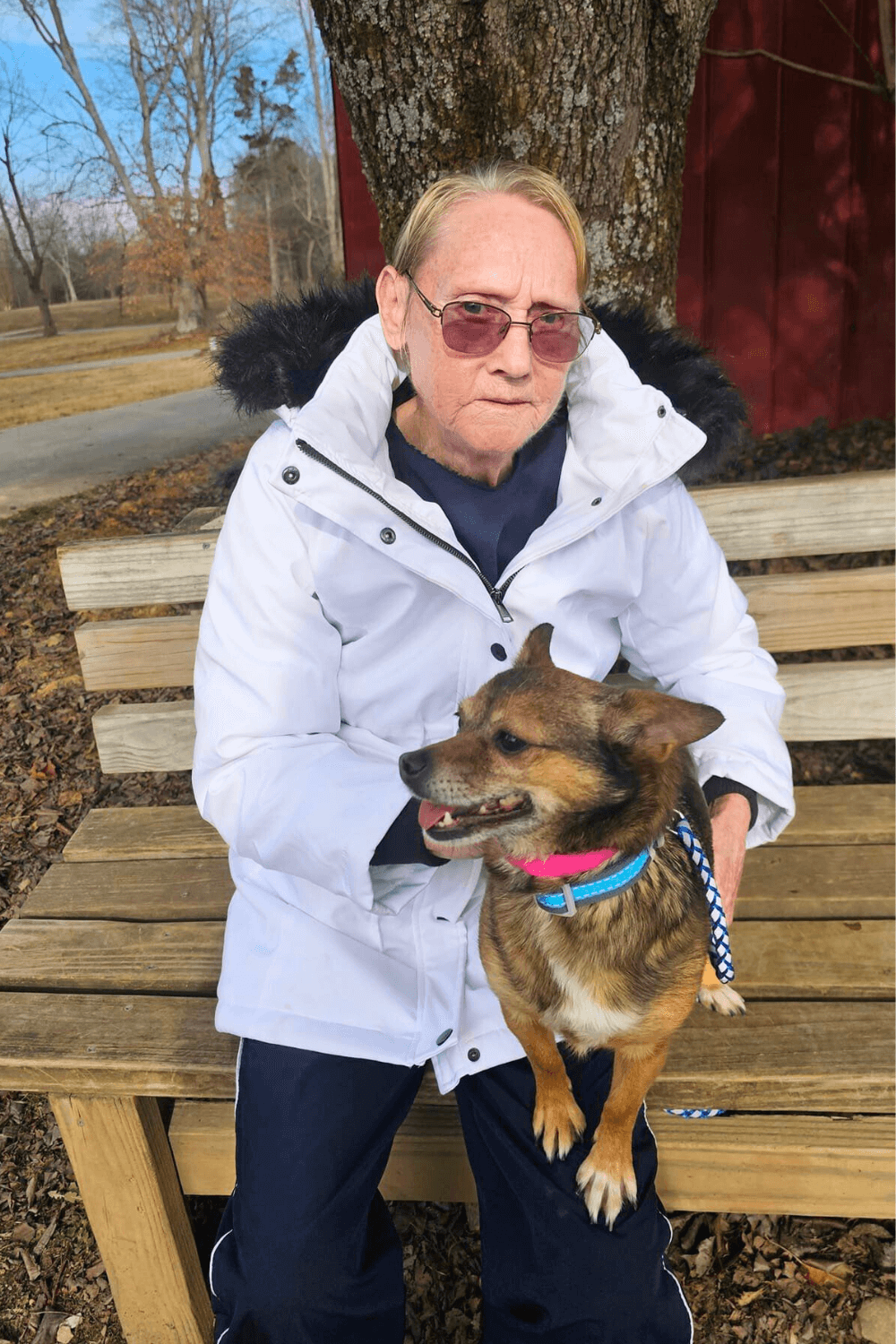
So after a year of serving in the thick of a brutal war Rory began her journey from battlefield to homefront.
“In 2005 they started to process me for medical discharge.”
Invisible wounds of war
Although Rory left the war, the war did not leave her. To this day the former combat medic copes with Post Traumatic Stress Disorder, or PTSD.
PTSD – often called the invisible wounds of war – afflicts up to 15 percent of deployed Iraq war veterans.
For years, Rory coped by staying connected to other veterans.
“I am currently in the Veterans of Foreign Wars (VFW), American Legion, and East Tennessee Vet to Vet,” she says.
It was at one VFW meeting that Rory first heard about Pets for Patriots. Our companion pet adoption program has helped many veterans with PTSD. It uplifts those living with anxiety, depression, and loneliness, too.
Our mission and work resonated with the retired combat medic.
“I chose Pets for Patriots because I am a veteran, and because I grew up with and love pets,” she shares. “I chose to adopt a dog because I have PTSD and I heard about animals possibly being to help with that condition.”
Pint-sized prescription
Rory appreciates that she was able to select a dog of her choosing. Because we focus on the most overlooked animals, a dog or cat must meet just one of our adoption criteria.
The former combat medic applied to Pets for Patriots and adopted on the very same day we approved her. She visited a local shelter partner to find her new best friend.
Since 2012 Monroe County Friends of Animals offers our veterans fee waived adoptions. Dozens of dogs and cats have found loving military homes through our partnership.
At the time of Rory’s visit in early December 2023, Claire was a six year-old Chihuahua mix. She barely tipped the scales at 14 pounds; her prior life is a mystery.
Yet Rory learned that is not the size of the dog in the fight, but the size of the fight in the dog.
Claire was a tiny bundle of love with the heart of a giant. Rory walked into the shelter that winter day and gave them both the second chance they needed.
“…changed my life”
It is always the simplest things that make the biggest difference in our lives. Rory did not have to upend her world to realize meaningful changes in her mental health.
All the combat medic had to do was adopt a dog who needed to give love as much as she needed to get love. One who has a temperament that is comforting and enlivening, without causing anxiety.
Rory has found renewed purpose with her pint-sized pup.
“I love Claire’s playful personality,” she says, “and I love playing fetch with her toy.”
We all need meaning in our lives. And there are few human interactions as meaningful as caring for another living being.
For veterans with PTSD – like Rory – everyday routines of pet care offer respite from invisible wounds. They offer a detour from the tendency to dwell in one’s own psyche.
“Adopting Claire has changed my life by realizing the need to take care of her, which helps me be able to cope with my PTSD. Having her distracts my bad thoughts.”


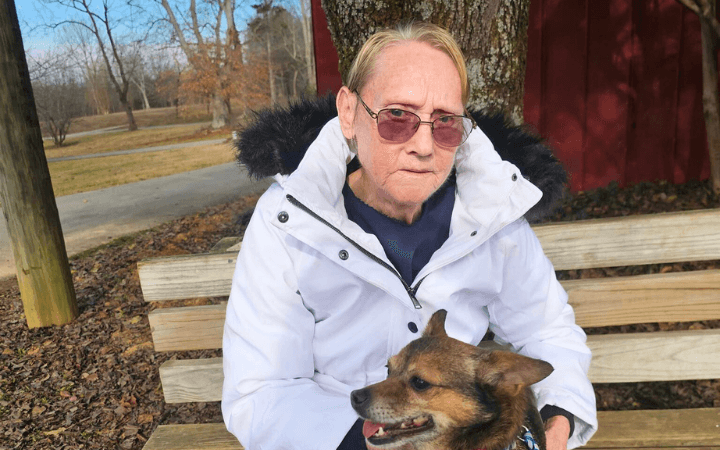

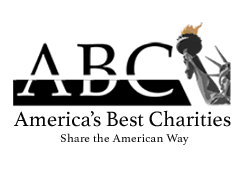
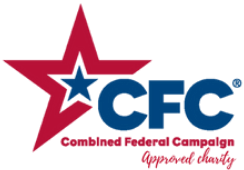





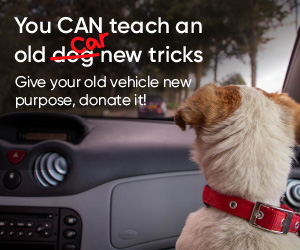
0 Comments